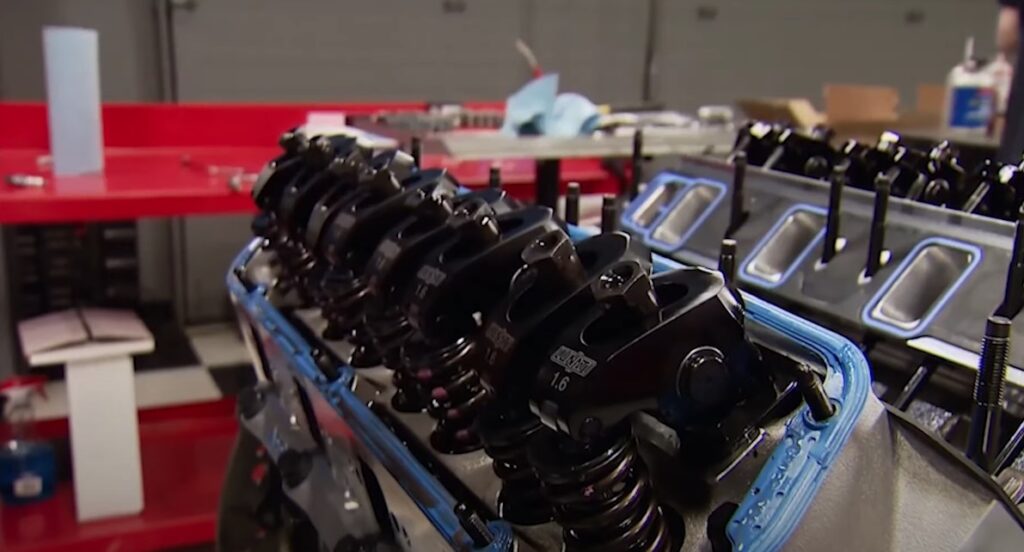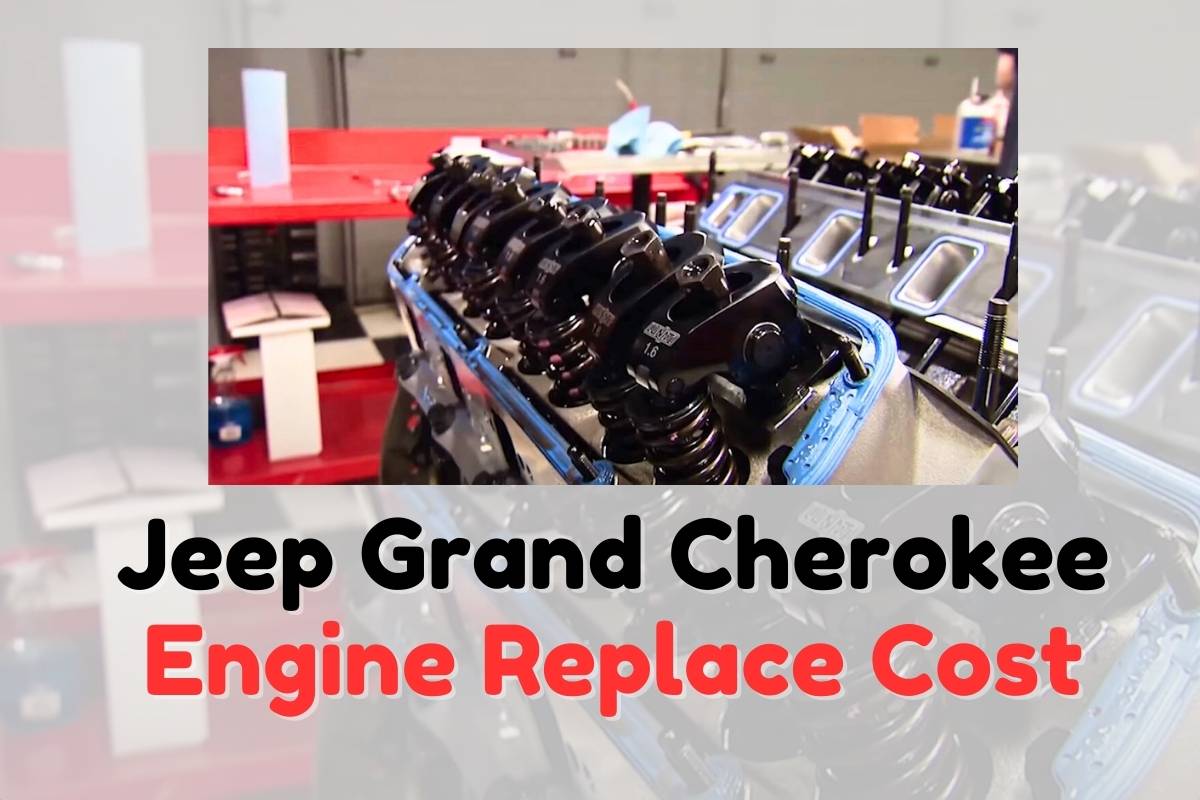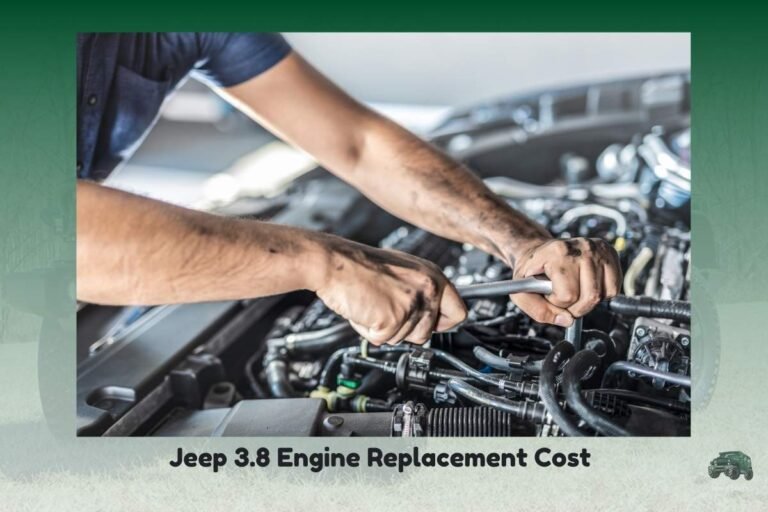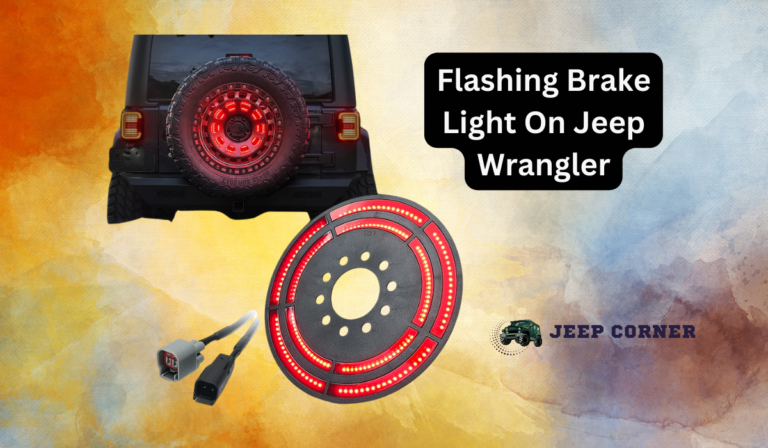Jeep Grand Cherokee Engine Replace Cost in 2026
The Jeep Grand Cherokee is a popular SUV that made its name for decades. There are several models of the Grand Cherokee, and they all have something in common: they are built to last. However, nothing lasts forever.
So, what is the Jeep Grand Cherokee engine replace cost? It will cost you between $2000 to $8000, inclusive of labor and a new engine. We cannot tell you the exact figures as the amount needed to get a new engine for your car will depend on your model. Some Grand Cherokee models have engines that are different from others.
Read on to learn more about how much it will cost to get a new engine, what type of engine you need to buy, and much more.
Table of Contents
An Overview Of Jeep Grand Cherokee Engine Replace Cost
Below are the costs to expect when you need an engine change. Keep in mind that these are just estimates. The actual cost will vary depending on where you source your engine and location.
The figures captured in the table below have not accounted for labor. Depending on the complexity and modifications you want, it will cost you approximately $900 to $4000.
| Generation | Years | Engine Specs | Engine cost (Approx) |
| First Generation | 1993 to 1998 | AMC 4.0-liter straight-six engine | $2,000 |
| 5.2-liter V8 | $2,800 | ||
| 5.9-liter V8 | $3,200 | ||
| Second Generation | 1999 to 2004 | 4.7-liter V8 | $3,000 |
| 4.0-liter straight six | $2,000 | ||
| Third Generation | 2005 to 2007 | 3.7-liter V6 | $2,500 |
| 4.7-liter V8 | $3,000 | ||
| 5.7-liter Hemi V8 | $3,500 | ||
| Third Generation Facelift | 2008 to 2011 | 3.0L Turbo V6 Diesel | $2,500 |
| 3.7L V6 Gas | $2,500 | ||
| 4.7L V8 | $3,000 | ||
| 4.7L V8 Gas | $3,000 | ||
| 5.7L “Hemi” multi-displacement V8 | $4,000 | ||
| Fourth Generation | 2011 to 2013 | 3.6L V6 Flex-fuel (FFV) | $3,000 |
| 5.7L VVT V8 HEMI MDS | $3,800 | ||
| Fourth Generation Facelift | 2014 to 2016 | 3.0L Turbo Diesel | $2,500 |
| 3.6L V6 Gas | $3,000 | ||
| 5.7L V8 MDS VVT | $3,800 | ||
| Fourth Generation Facelift 2 | 2017 to 2021 | 3.0L Turbo Diesel | $2,700 |
| 3.6L V6 Gas | $3,000 | ||
| 5.7L V8 MDS VVT | $4,200 | ||
| Fifth Generation | 2022 to present | 3.6L V6 Gas | $3,000 |
| 5.7L V8 HEMI MDS VVT | $3,800 |

How Do You Know it’s Time to Replace Your Jeep Engine?
Here are five surefire signs that you need an engine replacement for your Grand Cherokee:
1. Engine Knock Sounds
When your Jeep engine knocks, it’s a good sign of the engine getting old. The knock is a sound that can be heard as the pistons move up and down in the cylinders which might be a cause of warn out parts.
The sound is not dangerous or damaging to your Jeep, but it does indicate that it’s time to replace your engine. If you think you hear a knocking noise coming from your Jeep’s engine, check out what’s causing it.
If there are no apparent issues with your fuel system or spark plugs, look into replacing your spark plugs and belts. If those appear fine and don’t cause any noise when worn out, you have another option: replace your engine.
2. Smoke in the Exhaust
When smoke appears in the exhaust, it means that components within the combustion chamber wear out or break down. Several different factors can cause this.
This includes age-related problems like carbon buildup or wears on the valves and pistons. If you have already replaced your spark plugs and wires but still see smoke in your exhaust, it’s likely time to get a new engine!
3. Low Performance
You may notice that the engine feels weak when you start it up or that it doesn’t have the same punch as before replacing your engine. If this happens more than once over a short period (a few weeks), it’s likely time for a new engine.
4. High Gasoline Consumption
If you’ve been getting about 40 miles per gallon but suddenly notice that you’re only getting 20 miles per gallon or even less, it’s probably time to replace your engine with something new!
A damaged engine will not have fuel efficiency. It will struggle with sensors and getting the right amount of air-to-fuel mixture ratio.
5. Stalling and Stuttering
Stalling and stuttering are two of the most common signs that your Jeep’s engine is failing.
- Stalling: You’ll hear a loud rumbling sound while driving and feel a vibration in the steering wheel. It’s usually accompanied by a Check Engine light coming on. The engine might stop running altogether or run for a few seconds before dying out.
- Stuttering: If you’re driving down the road at moderate speeds, something may happen that makes the engine make a loud knocking noise. The sound could be similar to an object hitting an oil pan or a rock hitting an oil pan. Your vehicle might stall out as a result.
Can I Replace the Jeep Grand Cherokee Engine By Myself?
Yes, you can replace your Jeep Grand Cherokee engine by yourself if you are determined enough. It’s not easy, but it is possible.
You should know that this job requires careful planning and preparation. Many things can go wrong, and you could lose money or damage your vehicle.
However, if you’re willing to be patient and pay close attention to instructions and follow them closely, it can be done successfully. Here’s how to do it:
1. Drain All the Engine Fluids
To drain all the engine fluids, you need to remove the spark plug cover, air cleaner, and intake manifold. Then you will have access to your engine’s oil, coolant, and transmission fluid.
2. Disconnect the Exhaust and Air Intake
Start by removing the bolts that hold your exhaust to the Jep engine. Follow the exhaust to the back of the car while unscrewing all the bolts holding it in place.
Next up, find all your air intakes and unscrew them from the engine. Keep these parts intact, as you might need them to repair your new engine. Don’t forget to disconnect all the coolant lines too.
3. Disconnect Transmission and Wiring
When disconnecting your transmission, do not remove one bolt at a time. We recommend loosening all the bolts at the same pace. Once they are all loose, you can remove one after the other.
As for wiring, start by removing your battery. Disconnect all the wires and spark plugs in your engine. By now, your engine should be isolated and has no connections to any other part of your vehicle.
4. Unscrew the Engine Mounts
This step is pretty straightforward. Engine mounts are made of rubber and steel. The rubber helps absorb vibrations. You should be gentle enough not to tear the rubbers, as you will need them later.
5. Lift the Old Engine Away
Here, you need the help of a friend and a jack or a professional lift. You should be extremely careful with this step. The engine should not sway; this could cause damage to the remaining parts of your vehicle.
You could also get your finger pressed between the swinging engine and the bay. So, be extremely careful and slow, but sure.
6. Replace with the New Engine
Use a professional lift to lower your new engine into place. Ensure it fits perfectly where the old engine used to sit. Bolt it into place and attach all the wiring. Connect the transmission, air filter, and all the other components attached to your old engine.
Once done, refill the engine coolant, transmission oil, and engine oil. Start your car and let it idle for a few seconds. Test drive it and correct anything that you will notice isn’t functioning normally.
Engine Removal Video
Demonstration of Jeep Grand Cherokee engine removal.
It will help you to a better understanding of the steps.
Advantages and Disadvantages of Replacing Your Grand Cherokee Engine
Here are the benefits and disadvantages you accrue with a Jeep engine replacement:
Advantages
Disadvantages
You may also like to read
FAQs
Here are answers to some of the questions you might have in your mind:
Can I Use a Refurbished Engine for My Grand Cherokee?
Yes, you can use a refurbished engine for your Grand Cherokee. Refurbished engines are as good as new engines. However, you must ensure that your engine is safe to use. It should meet specific requirements for quality and reliability.
This means that It must be free of leaks. The engine should have been tested and approved by the manufacturer. It should also be in good condition and have no corrosion.
How Long Does the Jeep Grand Cherokee Engine Last Before a Replacement is Needed?
The Jeep Grand Cherokee engine lasts about 200,000 miles before a replacement is needed. This is the average lifespan of a Jeep Grand Cherokee engine, and it’s based on real-world driving conditions and maintenance actions taken by owners.
The Jeep Grand Cherokee engine is designed to run reliably for many years, but you can expect to get more out of them if you take care of them properly. Regular oil changes, cleaning the air filter regularly, and replacing worn parts are all ways to extend the life of an engine.
How Do I Save Costs When Replacing a Grand Cherokee Engine?
If you want to save money on your Grand Cherokee engine replacement, you should consider rebuilding it instead of changing it. This process entails removing worn-out parts and replacing them with new ones.
However, engine rebuilding instead of changing is not the best option for you (or your vehicle). It entails many steps and a lot of downtime between steps. You’ll want to ensure that you do everything correctly, or else your vehicle could suffer from many problems down the line.
Conclusion
The Jeep Grand Cherokee engine replacement cost is not cheap, but it’s worth it. If you choose to replace your engine with a new one, you will be able to get the power and efficiency you need for your vehicle. You will forget about frequent breakdowns, engine stalls, and high fuel consumption.
You can consider a refurbished engine and swap it yourself to save costs on your replacement. You can also opt for your engine to be rebuilt for more savings.








